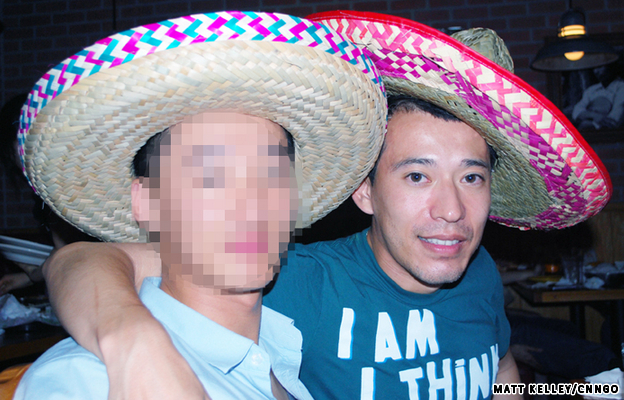 ( Source )
( Source )
1. “Why I want to be a whore”
Never being interested in gisaeng (기생) previously, I am now intrigued after reading this unorthodox perspective on them at Curiosity Killed the Eccentric Yoruba, with a special emphasis on the 2006 drama Hwang Jin-i (황진이) above. A quick excerpt:
While I do not believe that courtesans largely lived happy lives, I do believe that they were the freest and most independent women in those patriarchal societies. I remember my friend reading me an essay she had written which she called ‘Why I want to be a whore’. She had written that essay for a Latin class she took and the context was ancient Rome. According to my friend the only profession that ensured a woman’s freedom and independence was to be prostitution and I am pretty sure she meant the art of the courtesan.
Anybody know how I can watch Hwang Jin-i with English and/or Korean subtitles?
2. 60% of teens have unprotected sex
Naturally, that headline from The Korea Times actually only refers to sexually-active teens, and whom were only 5.1% of all the 75,238 teens surveyed (so in fact, only “3.06% of teens have unprotected sex”). But regardless, as always I would be very wary of drawing any conclusions from the data with no information provided about the methodology used, although I’d echo the report’s criticism of the woefully inadequate sex education provided at Korean schools.
If you’re interested in finding out more, please consult the categories on the right for many more posts on Korean teenage sexuality and related issues, or see this one on the age of consent and this one on sex education if you’d rather just have quick introductions.
3. Why is celebrity endorsement so important in Korean commercials?
When even the head of Korea’s largest advertising agency says that much of Korean advertising can be reduced to simply “beautiful people holding a bottle,” then it’s not just your imagination when you see so many idols doing so many commercials these days; now, see Omona! They Didn’t for why.
4. Chick lit in Korea
More from Charles Montgomery at Korean Modern Literature in Translation (see #7 here also), who is currently reading Sung Eun-cho’s journal article The Translation and Appropriation of Chick Lit in Korea:
An interesting read that alternates between literary theory and social history, it details how, in the late 90s and early 2000’s, Chick Lit came from overseas, took Korea by something resembling force, and was then recreated as a domestic product, but one that had internalized many of the messages of the original imports.
5. Cheerleaders helping to reinvigorate pro-baseball
So claims this Chosun Ilbo article, which also says that baseball stadiums are no longer the sole domain of middle-aged men but are now full of both men and women in their 20s.
Not a baseball fan myself, does anyone know if this is just wishful thinking or not?
 ( Source )
( Source )
6. Raining on Rain
Kyu, the Korean American, explains why he no longer respects the singer Rain (비).
7. Girls’ Generation members ordered to always wear make-up
Lest the sky fall in if even more pictures of them without it appear on the internet. But on a more serious note, I do have a Korean friend who works in a bank who has told me that she’d be fired if she repeatedly came to work with her face au naturel, although I don’t know how typical that is of Korean companies in general?
8. Korean student commits suicide after being raped during MT
Moreover, if not rape per se, then sexual harassment at least may well be endemic to MT culture:
Not too long ago, Brian (formerly) in Jeollanam-do reported on the university student who committed suicide after being raped on an MT. MT is short for “membership training” and they have nothing to do with any sort of training. Groups of students who are associated in some way (e.g. are members of the same club or have the same major) go somewhere, stay the night, and then return the next day. Participation is supposedly optional, but declining could get you ostracized, which is a big deal in Korea, particularly among university students. What do they do there? Drinking alcohol. Lots of it. Again, you’re pressured to conform and participate. If you don’t drink, or only a little, you will be angrily accused of “spoiling the mood” by your superiors (“seon-bae”). In Korea, subordinates (“hoo-bae”) basically have to do everything that their seonbaes demand, or risk the aforementioned excommunication. It’s common for male seon-baes to try to get female hoo-baes drunk so as to make sexually harassing them easier.
Read the rest at Extra! Korea.
 9. Two reactions to recent child sex crimes
9. Two reactions to recent child sex crimes
First, the good news: child rape victims are no longer required to testify in court when their alleged rapists are tried, although in light of the continuing confusion surrounding the age of consent in Korea I would have preferred it if the Yonhap News report had specified until what age victims are considered children (not academic if 13 year-olds are considered consenting adults).
More ominously however, the government has now decided to release the names and faces of alleged sex-offenders when there is “strong evidence of guilt and a public demand to know,” and one immediate problem that comes to mind is how open that is to interpretation. But as Seamus at Asadal Thought puts however, more crucial is the fact that it is just:
…another case of the government trying to just keep the people happy while completely missing the point.
The point is not that people want to see the faces of these people – they’re not a threat once they’re caught. What the people of Korea really want is, one, for better regulations to be put in place to stop these crimes being committed in the first place, and two, for the offenders to be given sufficiently harsh sentences when they’re charged.
Also in crime-related news, Korea Beat reports that an investigation has been opened into a Gwangyang high school teacher who allegedly slapped and beat students.
10. Korea’s gender wage gap in comparative perspective
Mentioning the fact that Korea has the largest gender wage gap in the OECD so many times, I have been remiss in not providing a graph like this earlier (via: Sociological Images):
11. Music videos banned for depicting…jaywalking
About to start writing an MA thesis in which I place:
…the censorship of recent years – invariably quite arbitrary, hypocritical, and inconsistent – into some sort of context, most likely that of the corporate interests of the various ministries and companies involved themselves.
Then I feel quite vindicated in light of hearing the supposed reasons both a recent Rain and Lee Hyori (이효리) music video have been banned from public television for.
 ( Source )
( Source )
Meanwhile, despite earlier reports (see #5 here) that singer G-dragon would not be prosecuted for the following sexually-charged performance at a concert attended by minors, this no longer appears to be the case:
With thanks for passing all the links on, see Tenshii’s comment for more information on those and many similar cases.
12. Avoiding Stalkers
I’m no Picasso and Jasmine Taiwo recently had problems with stalkers, and have a lot of good advice for other women in case the same happens to them. Also, see Roboseyo’s post for links to earlier incidents.
13. Overcoming South Korea’s gay love taboo
 ( Source: CNNGo)
( Source: CNNGo)
Best of luck to this couple in Seoul, although unfortunately they’re going to need it considering a Korean newspaper recently placed gay personals on a par with advertising prostitution. Also, see Doing It Korean Style for the recent storm in a teacup over a recent public kiss between 2 male singers.
14. “New university department modeled on the MIT Media Lab to nurture a pool of creative individuals to lead the country’s technology sector”…women need not apply?
Via fellow Twitterer José María Areta, how else is one to interpret the news that male students in master’s and Ph.D. programs there will be exempted from military service?
On the plus side however, one also wonders at its legality: just last month, affirmative action for men who had completed their military service was (again) ruled unconstitutional (see #13 here), and unless female graduates are offered similar benefits for receiving degrees then I’d be surprised if it wasn’t challenged as discriminatory.
15. Dating in Korea
Unable to write last week’s Korea Gender Reader because of computer problems, unfortunately there’s necessarily been a great many stories I’ve not covered this time for the sake of keeping this post to a readable length.
But of course I still have to mention all the recent excellent posts on this topic however, starting with this and then this by I’m no Picasso (a follow-up on those I mentioned at #3 here), the latter of which a Korean reader also weighs in on; next, there is Gord Sellar’s excellent series on “Expat Social Fallacies,” from which I’ve learned a great deal (and, indeed, been a little humbled by realizing how many apply to myself), of which Part 2 is primarily about dating; and finally, for those of you that missed it the first time, I recommend reading the post entitled “Western men in Korea who hate on K-guys: get some new material” at Doing It Korean Style first, in which a lot of regular commenters on this blog contributed to the long comments thread. Enjoy!
Filed under: Korean Gender Reader







Recent comments